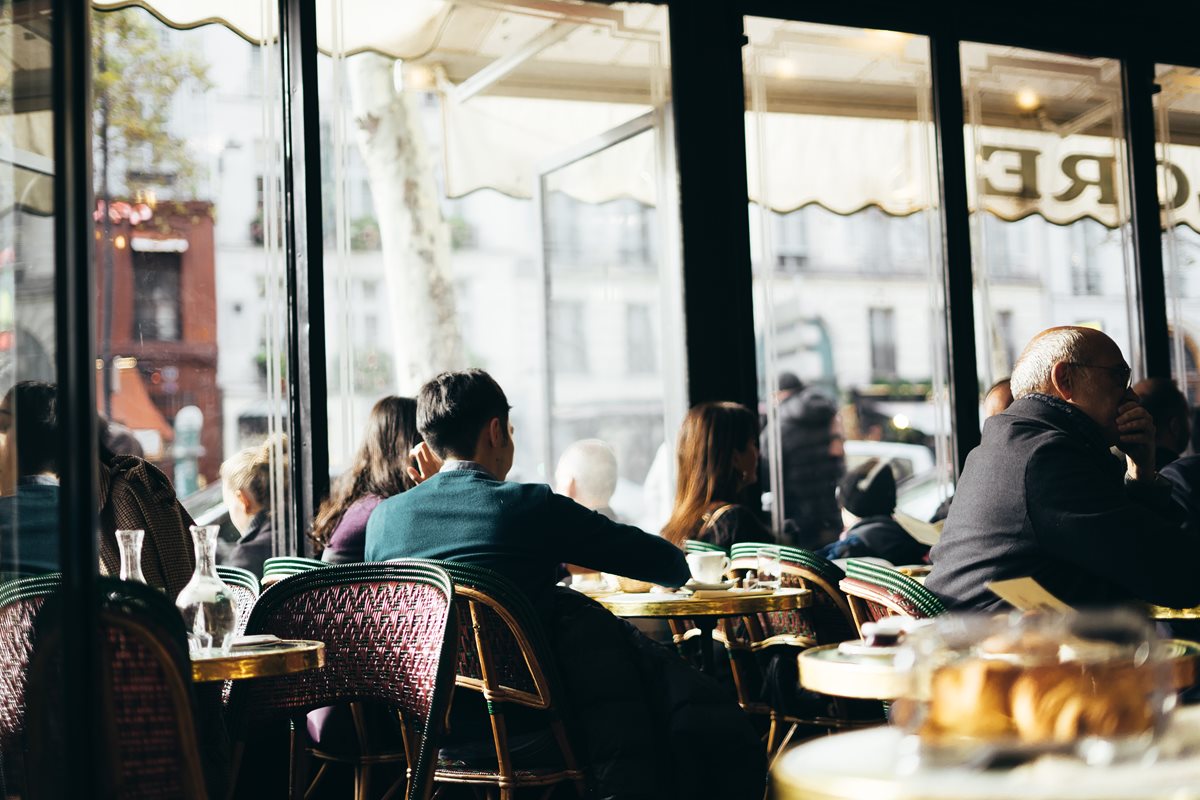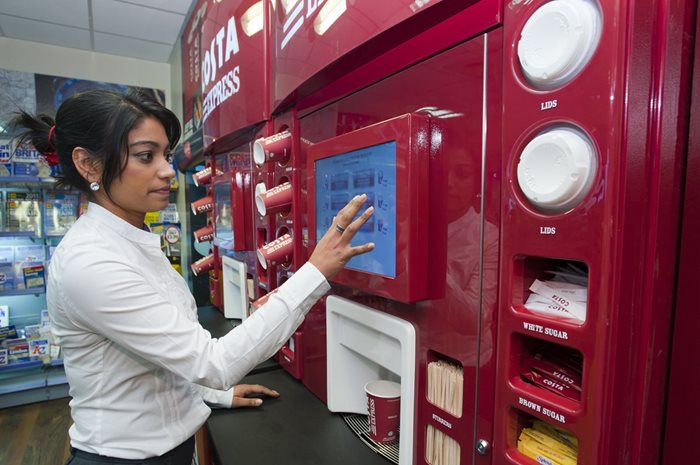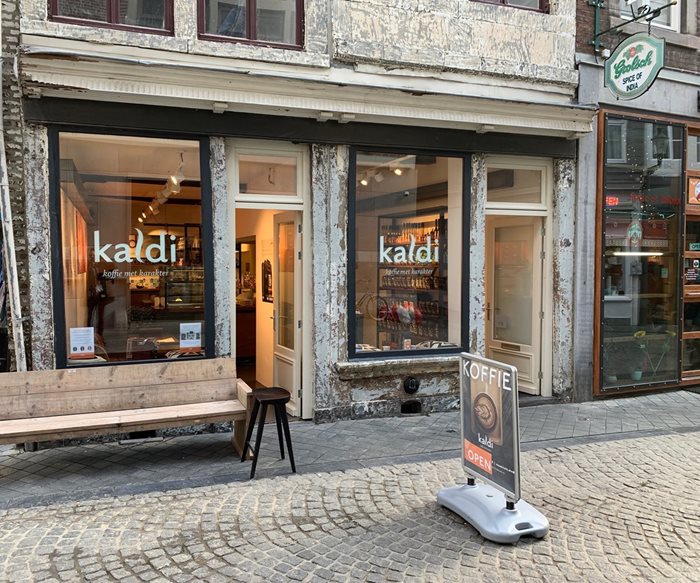Project Café Europe 2020 reveals the European branded coffee shop market added 1,235 stores during the last 12 months to reach 37,598 stores, representing 3.4% growth in outlets. For the first time World Coffee Portal surveyed consumers across four major national markets – France, Germany, Ireland and the Netherlands – to analyse national coffee consumption patterns. Here are some of our key findings.
.jpg.aspx?lang=en-GB&width=700&height=466)
Over a third of French consumers surveyed typically visit a coffee shop at least 4-5 times per week
France – A strong domestic café market
France has the one of the strongest traditions of eating and drinking out-of-home in Europe. An enduring 1st Wave coffee culture is evident across France’s estimated 35,000 neighbourhood cafés, including a strong 3,500+ branded café segment dominated by domestic businesses, such as market leaders Marie Blachère, Paul, and La Croissanterie.
Over one third of French consumers surveyed by World Coffee Portal in 2019 visit a coffee shop at least 4-5 times per week, with the overwhelming majority frequenting one of the country’s domestic branded chains on their last visit. This pattern is, in part, due to prevailing positive consumer attitudes towards domestic products and brands.
A 2017 government study found 60% of French consumers preference domestically produced products, with research from France’s Institute of National Statistics (INSEE) showing consumer confidence in mass retailers and large companies is two times lower than the trust given to small shops and craftsmen. Moreover, the importance of ‘Made in France’ certified products continues to gain momentum with consumers as a seal of quality and means of supporting local economies.
Founded in 1889, France’s Paul Bakery has grown into a modern, international, branded chain concept. Today the business operates more than 360 outlets across France with a further 135 outlets across international markets. One of France’s earliest and most successful second wave branded coffee chains is domestic business Columbus Coffee, which opened its doors in 1994 and now operates 158 stores.

 Germany – An ethical and sustainable focus
Germany – An ethical and sustainable focus
German consumers are more than twice as likely to purchase organic food and beverages than the average European consumer, making Germany the largest market for organic products in Europe. A fifth of German voters backed the Green Party during the 2019 European elections.
While innovations such as specialty coffee, cold brew and even takeaway coffee have been slow to permeate the market, consumer preference for high-quality, sustainable and ethically sourced products is beginning to influence Germany’s 5,500+ branded coffee shops. Over half of German consumers surveyed by World Coffee Portal in 2019 indicate they are willing to pay more for sustainably sourced coffee.
.jpg.aspx?lang=en-GB&width=700&height=464)
.jpg.aspx?lang=en-GB&width=700&height=464) Over half of German consumers surveyed indicated they would pay more for sustainably sourced coffee
Over half of German consumers surveyed indicated they would pay more for sustainably sourced coffee
A broad cross section of German industry leaders interviewed by World Coffee Portal in 2019 indicated many coffee shops are attempting differentiate themselves through sustainable and ethical initiatives. Swedish coffee chain Espresso House, which specialises in Direct Trade specialty coffee, rapidly expanded its German footprint from one to 40 stores in 2019. In April 2019 200-strong Bavarian chain, Coffee Fellows, launched 100% home-compostable takeaway cups that do not contain a plastic coating.
One of Germany’s most renowned specialty coffee chains, The Barn, has eight locations and invests heavily in supply chain transparency, environmental and economic sustainability among its farmers. Growing appetite for sustainably and ethically sourced coffee is also catalysing demand for sophisticated narratives surrounding coffee provenance and approaches to waste.

Republic of Ireland – A growing coffee vending market
Irish consumers exhibit some of the highest engagement of premium vending and self-serve coffee machines in Europe – with more than 70% of surveyed by World Coffee Portal indicating they have used one. Demonstrating the potential for development of the channel, curiosity was cited as the primary motive for doing so, followed by the convenience of not having to queue.
Coffee quality and convenient location were cited as the two primary motivations for coffee shop visitation, an attitude reflected in the growing roll-out of premium and gourmet vending machines by Ireland’s largest branded coffee chains. Vending machines also present the opportunity for brands with smaller store foot prints to extend their reach while keeping staff overheads and property costs low.
 More than 70% of Irish consumers surveyed have purchased coffee from an self-serve coffee machine
More than 70% of Irish consumers surveyed have purchased coffee from an self-serve coffee machine
Following its acquisition by Coca-Cola in 2018, Irish branded coffee chain market leader, Costa Coffee, continues to invest in its premium ‘Express’ vending channel. Ireland’s second largest coffee chain, Insomnia, has an extensive network of close to 400 ‘self-service kiosks’ predominantly located across Ireland with some UK sites – over four times the number of brick and mortar outlets it operates within the same territory. Premium Irish coffee shop Frank and Honest has a modest 12-store retail portfolio but has invested heavily in its coffee vending machine channel in the last few years. The chain has built an extensive national network of nearly 650 self-service machines located in high footfall shopping areas, shopping centres, and service stations.
A 2018 Irish government report found the country’s 4.9 million people throw away 200 million disposable coffee cups every year. In a move that could have ramifications for Ireland’s growing coffee vending machine segment, which predominately relies on single-use cups, in November 2019 the Irish government announced proposals to introduce a so-called ‘latte levy’ of up to 0.25 euros on disposable coffee cups by 2021.

The Netherlands – Fertile ground for artisan cafés
The Netherlands has been relatively slow to adopt branded coffee shop culture compared to its northern European counterparts. However, Dutch consumers show growing appreciation for artisan cafés and specialty coffee. They also display a strong preference to drink coffee in-store, a dynamic which has strengthened those brands focusing on boutique store environments, brewing techniques, and premium food prepared on-site.
This dynamic is reflected in the concentration of premium, artisan and specialty branded coffee chains in the Dutch branded café market. Three out of the top five coffee-focused chains offer either premium single origin or specialty coffee as a menu staple.

Kaldi Koffie & Thee in the Netherlands. The company operates 28 specialty coffee house outlets across the Netherlands plus four international locations in Denmark and China
With 34 stores, Doppio Espresso is the second largest coffee-focused café chain behind Starbucks and offers wide range of single origin coffees available in espresso and filter brewing formats. The third-largest coffee chain, Coffeecompany, specialises in single origin coffee, differing roasting profiles and brewing techniques. Twenty-eight-strong chain Kaldi Koffie & Thee similarly offers a wide range of single origin coffees with a focus on Fairtrade and transparent sourcing.
Another prominent example is Dutch specialty coffee shop and roaster 30ml Coffee Roasters, which has expanded to nine stores across the country and offers a core menu of single origin coffees. In the food-focused segment Dutch café and artisan food concept La Place has grown to 86 stores in the Netherlands, making it the largest branded café chain in the country.
